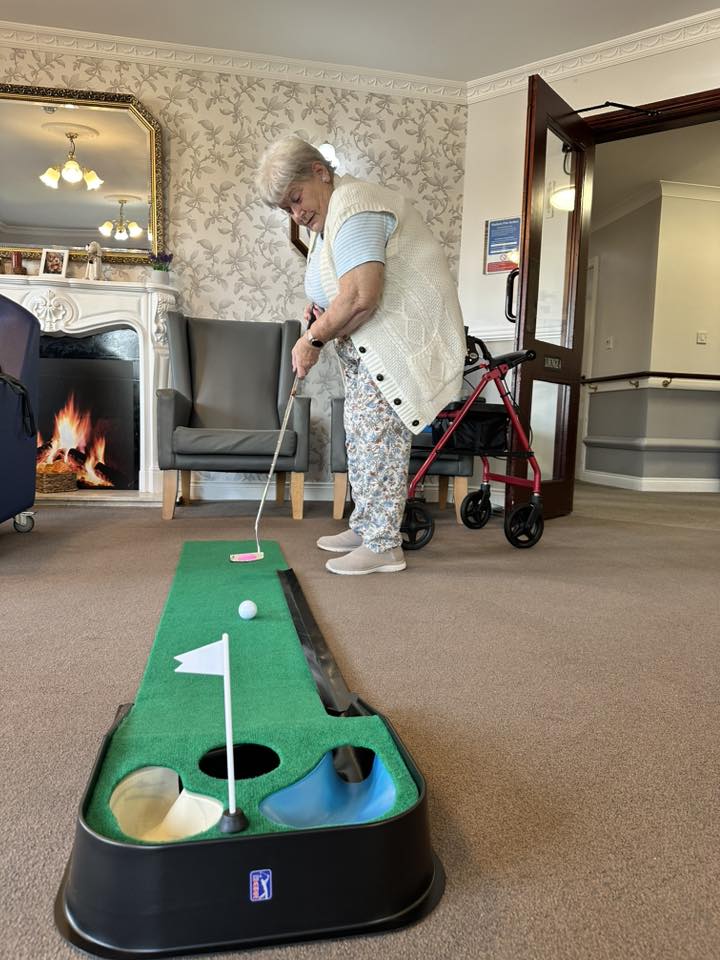What’s the Difference Between Residential & Nursing Care?

Choosing the right care home for a loved one is a significant decision that involves weighing many factors. Understanding the differences between residential and nursing care can help families make an informed choice that best meets their loved one’s health needs and lifestyle preferences. In this blog, we explore what each type of care offers, how they differ, and guide you through the decision-making process with clarity and compassion.
What Is Residential Care?
Residential care, typically provided in a residential care home, is designed for older adults who may no longer be able to live independently but do not require frequent medical treatment or around-the-clock nursing support. In these settings, residents receive help with everyday tasks such as personal care, meal preparation, and managing day-to-day activities. The care is delivered by qualified care assistants who specialise in supporting older adults with their routine needs. While care assistants are not nurses, they are highly skilled at ensuring residents live in a safe, comfortable environment with access to shared communal areas including lounges, gardens, and dining rooms.
One of the key benefits of residential care is the balance it offers between privacy and social interaction. Many residents enjoy having their own personal space while also benefiting from the company of others. The social opportunities and a wide variety of activities available, from group exercises to arts and crafts, help reduce feelings of loneliness and promote both mental and physical engagement.



What Is Nursing Care?
Nursing care is delivered in nursing homes (and multicare homes), which combine the supportive environment found in residential care with specialist medical services provided by qualified nurses. These homes cater to residents with complex medical conditions, severe physical disabilities, or those who need frequent medical treatments. In nursing homes, trained registered nurses are available around the clock, supported by a team of care assistants. This structure allows for a higher level of care, especially important for residents who are bed-bound, have ongoing complex medical needs, or require continuous monitoring.
Nursing homes typically have a home manager, nursing staff, and access to visiting healthcare professionals such as physiotherapists, doctors, and occupational therapists. This comprehensive team approach ensures that residents receive holistic care tailored to their specific medical and personal requirements.
The Main Difference Between Residential & Nursing Care
The fundamental difference between residential and nursing care lies in the availability of registered nurses on site. Residential care primarily focuses on assisting residents with daily tasks and personal care needs, whereas nursing care homes provide all these benefits plus specialist medical care delivered by trained nurses at all times. This distinction allows nursing homes to cater to individuals facing significant health challenges who require continuous medical supervision, such as managing complex conditions or recovering from surgery. Residential care, on the other hand, supports those with fewer medical needs who still require a safe and supportive environment to live comfortably.
In residential care settings, the emphasis is often on maintaining independence while offering compassionate assistance with everyday activities like washing, dressing, and meal preparation. By contrast, nursing homes have registered nurses on duty 24/7, equipped to provide clinical treatments, administer medications, and respond promptly to any medical emergencies. This higher level of medical oversight ensures peace of mind for families and residents alike.
Additionally, nursing homes tend to have specialised medical equipment and tailored health plans, making them suitable for individuals who need ongoing rehabilitation or monitoring. Both care types provide warm, home-like environments and social activities, but the presence of nursing staff distinguishes the level of clinical care residents receive. Ultimately, choosing between residential and nursing care means matching the level of medical support to the specific health needs of your loved one, ensuring they receive the right care in a compassionate setting.
When To Choose Residential Care
Residential care is often the best choice for individuals who do not require constant medical supervision but need help with day-to-day activities. This includes those who may have some mobility issues, need assistance with personal hygiene, or prefer a community setting that offers companionship and structured activities without intensive medical intervention. Residential care emphasises maintaining independence wherever possible, while offering reassurance through the availability of trained staff who can provide support when needed.
When To Choose Nursing Care
Nursing care is typically more appropriate for elderly individuals with complex health conditions requiring regular medical attention or those with severe physical disabilities. This includes people who are bed-bound, have advanced dementia, or need ongoing treatments such as wound care, injections, or monitoring of chronic illnesses. Having registered nurses available 24 hours a day provides safety and peace of mind both for residents and their families, ensuring that health professionals can respond quickly to any changes in medical condition.
Shared Features Of Residential & Nursing Care
Despite their differences, residential and nursing care homes share many common features. Both offer warm, welcoming environments where residents can feel part of a caring community. Facilities like Hillside Lodge provide spaces for social engagement, meaningful activities, and access to communal areas that enhance quality of life. The goal in both types of care is to support residents’ comfort, dignity, and overall wellbeing.
How To Decide Which Is Right For Your Loved One
Deciding between residential and nursing care depends largely on your loved one’s medical needs and level of independence. Factors such as their ability to manage daily tasks, need for medical supervision, and personal preferences should all be considered. Seeking advice from healthcare professionals and arranging a thorough needs assessment can be invaluable in making an informed choice that best supports your loved one’s health and happiness.
Making The Right Choice
Understanding the distinction between residential and nursing care helps ensure your loved one receives the appropriate level of support. While both provide safe and supportive environments, nursing care offers the critical element of continuous professional medical care. At Hillside Lodge Care Home, we recognise this decision can be overwhelming. Our experienced team is here to guide you, answer your questions, and tailor care plans that meet the unique needs of your family member, ensuring comfort, safety, and a high quality of life.
Take the first step today, contact us to schedule a personal tour or a consultation. Let us help you find the perfect care solution tailored to your loved one’s needs. Your family’s peace of mind is just a phone call or message away.






